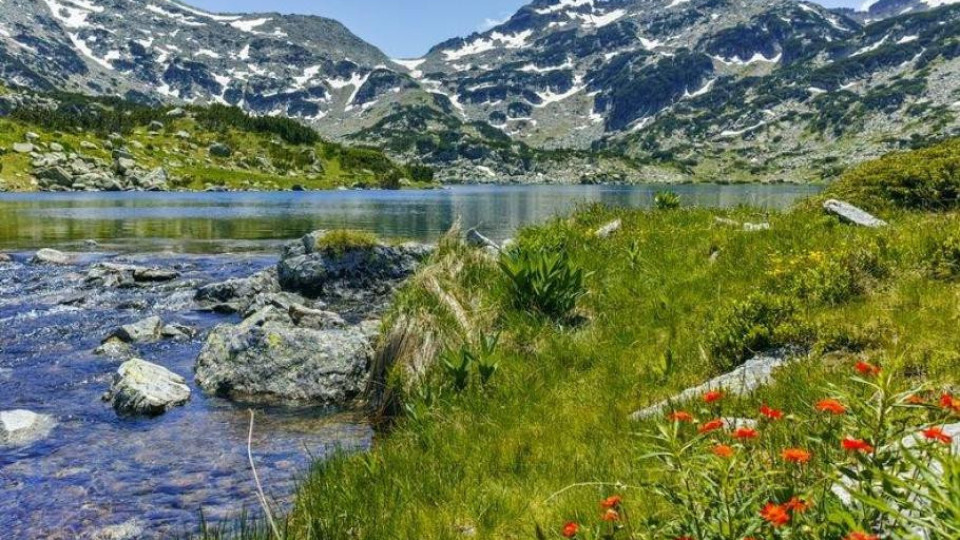The influence of the „ecologists’” party is experiencing a steady downward trend.
At the parliamentary elections of 2009, 2013 and 2014 the “conservation formation” won 0.52%, 0.749% and 0.61%, respectively. The EU elections in 2009 and 2014 show a downward trend in support with 0.72% and 0.56%.
The electoral weight of the Greens in Democratic Bulgaria, which also includes Democrats for Strong Bulgaria and Yes, Bulgaria, is approximately 0.6 %. For the last five elections for national and European parliament where the “ecologists’” party ran on its own, it got insufficient total support to earn representation in the Bulgarian or European Parliament. At the parliamentary elections of 2009, 2013 and 2014 the “conservation formation” won 0.52%, 0.749% and 0.61%, respectively. The EU elections in 2009 and 2014 show a downward trend in support with 0.72% and 0.56% (see the table). Despite the low public support the Greens take credit for the small successes of the three-party coalition. The reason behind this paradox is that the “ecologists” are the loudest group in the Bulgarian political and social life. They always protest in support of “causes” backed by financial and lobbyist interests. The official authorities, on the other hand, satisfy their claims without discussions or arguments.
Under the cover of NGO
The intensive political activity of the Greens has been progressing under the cover of non-governmental organizations (NGOs) since 1999.
More than 20 years ago there was an NGO-founding wave: Green Balkans, Bulgarian Society for the Protection of Birds, Swiss-Bulgarian Biodiversity Foundation, Green Policy Institute, Balkans Wildlife Society. Today they remain united in a coalition named For the Nature in Bulgaria which, in turn, has virtually merged with the green political party.
The party of the Greens
In order to advance their interests, the “ecologists” from the coalition For the Nature in Bulgaria needed political representation. And so, in the autumn of 2008 the Green Party emerged. Its mentors were the indicted oligarch Ivo Prokopiev and a veritable political chameleon, the political scientist Evgeni Daynov, who has changed his colour from red to blue and is now green.
The party was created to serve the interests of Prokopiev in the field of renewable energy sources and to influence the economic and investment processes in the country.
Ecological problems account for a miserable percentage of the arsenal of the formation. A huge part of its activity is directed against the economic development of Bulgaria and tourism in particular. Another aim is to block big national and private infrastructural projects.
Using ecological rhetoric “the conservationists” are attempting to manipulate society. This helps them in winning public bids for millions provided by national and European programmes. The idea is that the political formation, which has merged with the coalition For the Nature in Bulgaria, expands its political influence via direct participation in the structures of authority.
Financing the formation
The “green” NGOs need solid financing to emerge, register and function. The main source of income are the European funds and the so-called grants, i.e., sponsorship from foreign organizations.
At the beginning of the 21st century the “ecologists” flooded the Ministry of Environment and Water with proposals to create new protected territories, wetlands and nature parks. The aim was, after the establishment of these territories, to develop management plans, i.e., programmes for protection of the flora and fauna in order to appropriate money. This is what the greens are still doing today.
Projects are stalling, lives are lost
Due to the pressure exerted on the state by the Greens, Lot 3.2 of Struma Motorway between Krupnik and Kresna has not yet been completed.
After the Bulgarian court denied definitively the claims of the ecologists for the construction of a 15-kilometer tunnel, the conservationists started a massive international campaign against the surface road project.
They are manipulating the public opinion with the thesis that the motorway would destroy the nature in the locality of Kresna gorge. The truth is that the Greens lobbied for the tunnel to be built by the Swiss consortium Amberg. Because of the delay in the motorway construction, the current narrow 2-lane road through the gorge is among the most treacherous in Bulgaria: from 2010 to 2019, 235 people have lost their lives in serious accidents.
Meanwhile, due to the pressure the “ecologists” exert on the business, projects for winter sports infrastructure worth more than half a billion euros are currently blocked.
Many investors gave up because of the “green” pressure and the powerlessness of the state. The failure of the projects Super Borovets, Perelik in the Rhodopes, Panichishte in Rila Mountain, Destination Rila, Kom Berkovitsa in the Balkan Mountain and Kulinoto in Pirin is a huge loss for the development of tourism, the regions and the country.
Not only tourism suffers. The “ecologists” are also targeting companies from the mining industry: Elatsite Mining and Processing Plant, Assarel-Medet, Aurubis, Dundee Precious, Gorubso and many others.
Four years ago, investors were interested in reviving the local gold mine in the municipality of Tran. The project guaranteed more than 400 jobs in one of the poorest regions in Bulgaria to support its development. However, the greens intervened and manipulated the public opinion by claiming that uranium would be mined together with the gold. Under their pressure the Municipal Council in Tran organized a local referendum. Mislead by the ecologists, more than 90% of the locals voted against the operation and the investor pulled out. Tran remains among the towns with the highest levels of unemployment in the country.
Source: Crimesbg.com
Ecological racketeering with protected territories
While the Greens claim that Bulgarian nature is in a miserable state, the facts speak otherwise: the country has three national parks, namely Rila, Pirin and Central Balkans. Additionally, there are 11 nature parks and 55 reserves. There are also 36 supporting reserves, 11 wetlands, 349 natural monuments and 502 protected areas. Meanwhile, the zones of Natura 2000 which cover 35% of Bulgaria have engulfed more than 750 000 properties of 1 100 000 private owners.
Close to 50 percent of the 111 000 square kilometers of Bulgaria are under some type of ecological “protection”. By rule, these zones are the most appropriate for development of tourism, spa, agriculture, different types of production and many other activities.
Despite the low level of trust
The question why the authorities comply with all claims of the Greens, a political formation with support close to zero, remains unanswered. It is also unclear why the green party is in the coalition of Democratic Bulgaria where apparently no one needs it.
Probably the coalition thinks that the green idea is useful. But in contrast to the western ecological parties, the local “conservationists” use the ecological cause for personal benefits and lobbyism. Because of them the green idea has been compromised and synonymized with ecological racketeering.
The participation of the Greens may indeed play a bad joke on Democratic Bulgaria at the parliamentary elections. Furthermore, the Greens are inherently ultraleft extremists and this fact repels the votes of authentically right voters whose support is sought by DB.
Source: Crimesbg.com








Коментирай